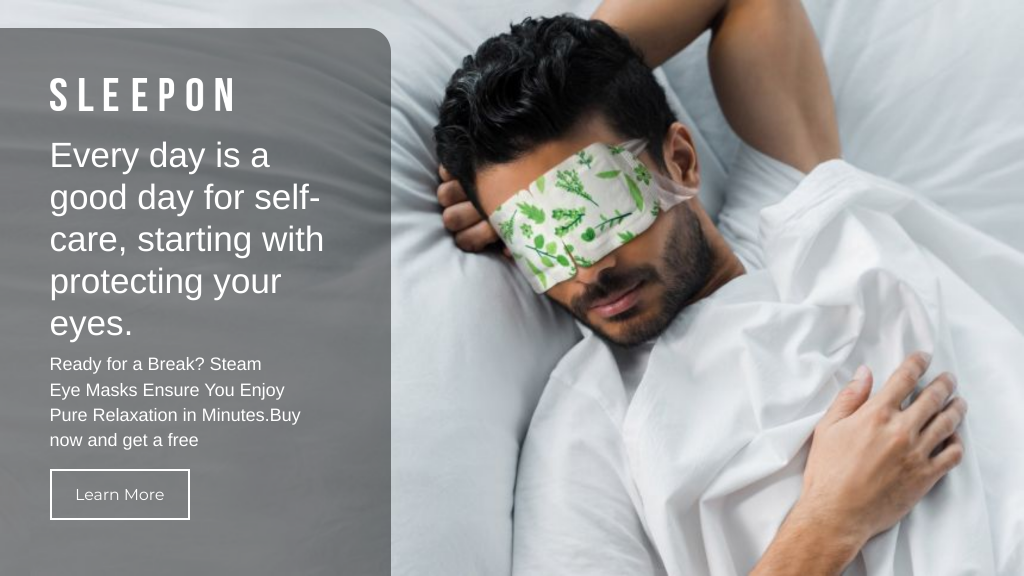How To Maintain a Healthy Circadian Rhythm
How To Maintain a Healthy Circadian Rhythm
What is biological clock?
A biological clock, also known as a circadian rhythm, is a natural, internal timing system that regulates various physiological and behavioral processes in living organisms, including humans. It operates on approximately a 24-hour cycle, influencing the timing of numerous functions within the body. The circadian rhythm is primarily governed by the suprachiasmatic nucleus (SCN), a tiny region in the brain’s hypothalamus.Key aspects regulated by the biological clock include:
1. Sleep-Wake Cycle:
The circadian rhythm influences when you naturally feel awake and alert and when you feel sleepy. It plays a significant role in your daily sleep patterns, helping you fall asleep at night and wake up in the morning.2. Hormone Secretion:
The timing of hormone release, such as cortisol (a stress hormone) and melatonin (a sleep-regulating hormone), is tightly controlled by the biological clock. These hormones play crucial roles in various bodily functions.3. Body Temperature:
The circadian rhythm affects the body’s core temperature. Core temperature tends to decrease in the evening, signaling that it’s time for sleep and recovery.4. Metabolism and Digestion:
It influences the timing of hunger and meal times, impacting digestion and the body’s metabolic processes.5. Cognitive Function:
Cognitive abilities like memory, concentration, and alertness follow a pattern dictated by the circadian rhythm. It can influence the effectiveness of studying and problem-solving at different times of the day.6. Mood and Emotional Regulation:
Mood and emotional states can be influenced by the circadian rhythm. Disruptions to the biological clock can lead to mood swings and even mood disorders like depression.7. Physical Performance:
The circadian rhythm can affect physical performance, with certain times of the day being associated with higher levels of physical strength and endurance.8. Cellular Processes:
Many cellular processes, including DNA repair and replication, are coordinated by the circadian rhythm, optimizing these functions at specific times of the day.Biological clocks are not only present in humans but also in most living organisms, from animals to plants. These internal clocks are synchronized with the external environment, primarily through exposure to light and darkness. Natural light, particularly sunlight, plays a pivotal role in resetting and aligning the circadian rhythm to a 24-hour cycle.
It’s important to maintain a stable and synchronized biological clock to support overall health and well-being. Disruptions to the circadian rhythm, such as those caused by irregular sleep schedules or shift work, can lead to a range of health issues, including sleep disturbances, mood disorders, and metabolic problems.
What are the examples of disruption in circadian rhythm?
Disruptions in the circadian rhythm, or biological clock, can arise from various factors and situations. Here are some common examples of disruptions in the circadian rhythm:1. Shift Work:
Working late-night or rotating shifts can significantly disrupt the circadian rhythm. Irregular work schedules may require individuals to be awake and active when their body’s natural clock signals it’s time for sleep.2. Jet Lag:
Traveling across multiple time zones can result in jet lag, as the body’s internal clock needs time to adjust to the new time zone. This can lead to symptoms like fatigue, insomnia, and digestive issues.3. Sleep Disorders:
Conditions like insomnia, sleep apnea, and restless leg syndrome can interfere with the body’s natural sleep-wake patterns, causing significant disruptions to the circadian rhythm.4. Irregular Sleep Patterns:
Inconsistent sleep schedules or erratic sleep patterns, such as frequently changing bedtimes and wake times, can disrupt the circadian rhythm. This inconsistency can lead to sleep problems.5. Exposure to Artificial Light:
Overexposure to artificial light, particularly blue light emitted by electronic devices, during the evening can interfere with the production of melatonin, a hormone that helps regulate sleep. This can shift sleep-wake patterns.6. Shifts in Meal Times:
Consuming meals at irregular hours or having heavy meals close to bedtime can affect the body’s internal clock. Eating patterns play a role in regulating the circadian rhythm.7. Medical Conditions:
Certain medical conditions, including depression, bipolar disorder, and neurological disorders, can have a substantial impact on circadian rhythms. These conditions may lead to disruptions in sleep and daily rhythms.8. Social Jet Lag:
Social and work schedules that do not align with an individual’s natural circadian rhythm can result in social jet lag. For example, early school start times for night owls can lead to sleep disruptions.9. Travel and Time Zone Changes:
Frequent travelers, such as flight attendants and pilots, often experience disruptions in their circadian rhythms due to recurrent time zone changes.10. Aging:
As people age, their circadian rhythms may naturally shift. Older adults often find themselves waking up earlier in the morning and feeling sleepier in the evening.11. Genetics:
Some individuals have genetic variations that affect their circadian rhythms, making them naturally “night owls” or “early birds.”12. Hormonal Changes:
The body’s production of hormones, such as melatonin, cortisol, and growth hormone, is regulated by the circadian rhythm. Changes in these hormone levels throughout the day and night can impact various bodily functions and rhythms.These disruptions can result in sleep disturbances, mood swings, reduced cognitive performance, and an increased risk of various health issues, including metabolic disorders and cardiovascular problems. Recognizing the sources of circadian rhythm disruption is the first step in addressing these issues and working toward a healthier sleep-wake cycle.
How To Maintain a Healthy Circadian Rhythm
Maintaining a healthy circadian rhythm is essential for overall well-being and can have a significant impact on your physical and mental health. Here are some tips on how to maintain a healthy circadian rhythm: 1. Regular Sleep Schedule: – Try to go to bed and wake up at the same time every day, even on weekends. Consistency helps regulate your body’s internal clock.2. Morning Light Exposure:
– Spend time outdoors in the morning to get exposure to natural light. This helps reset your circadian rhythm and signals your body that it’s time to be awake.3. Limit Evening Light Exposure:
– Reduce exposure to artificial light, especially blue light from electronic devices (phones, computers, TVs) in the evening. Blue light can suppress melatonin production, making it harder to fall asleep.4. Sleep-Friendly Environment:
– Create a comfortable and dark sleeping environment. Use blackout curtains to block out external light, and keep your bedroom cool and quiet.5. Avoid Heavy Meals Before Bed:
How What You Eat Affects Your Sleep
– Try to finish eating at least 2-3 hours before bedtime to allow for proper digestion. Heavy or spicy foods can disrupt sleep.6. Caffeine and Alcohol:
– Limit or avoid caffeine and alcohol, especially in the hours leading up to bedtime. Both can interfere with sleep quality and the circadian rhythm.7. Regular Exercise:
– Engage in regular physical activity, but try to avoid strenuous exercise close to bedtime. Morning or afternoon workouts can help regulate your circadian rhythm.8. Mindful Naps:
– If you need to nap during the day, keep it short (20-30 minutes) and earlier in the day to avoid interfering with nighttime sleep.9. Limit Evening Activities:
– Try to wind down in the evening with calming activities such as reading, taking a warm bath, or practicing relaxation techniques like deep breathing or meditation.10. Reduce Stress:
– High stress levels can disrupt your circadian rhythm. Practice stress management techniques to promote relaxation.11. No Alarm Clock Snooze:
– Avoid hitting the snooze button in the morning. It’s better to wake up at the intended time to maintain consistency.12. Avoid Shift Work:
– If possible, avoid irregular work shifts that disrupt your sleep-wake patterns. If you must work irregular hours, consider strategies to minimize the impact on your circadian rhythm.13. Seek Professional Help:
– If you have persistent sleep problems or circadian rhythm disorders, consult a healthcare professional or sleep specialist for guidance and potential treatments.14. Use Light Therapy:
– Light therapy lamps can be helpful for individuals with specific circadian rhythm disorders or those living in areas with limited natural light. Consult a healthcare professional before using light therapy.15. Stay Hydrated:
– Dehydration can affect sleep quality. Ensure you stay adequately hydrated during the day, but limit fluid intake close to bedtime to avoid nighttime awakenings.Maintaining a healthy circadian rhythm is essential for quality sleep, mood regulation, cognitive function, and overall health. While individual sleep needs can vary, these general guidelines can help most people establish and sustain a robust and consistent circadian rhythm. Remember that it may take time to adjust and see the benefits, so be patient and persistent in your efforts.
ABOUT US
SLEEPON offers you a comprehensive range of sleep health products, including intelligent sleep monitoring devices, sleep improvement tools, and sleep tracking technology. Understand your sleep habits, optimize your sleep quality, and provide a complete sleep solution to enhance your health and life.












